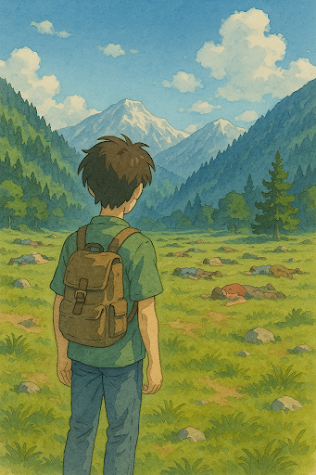There are some acts that cross every line of decency, every margin of belief, and every boundary of what we can still call human. The April 22nd 2025 massacre in Pahalgam is not just a terrorist attack—it is a spiritual insult to humanity itself. It wasn’t an ambush on soldiers in uniform, nor a skirmish in a contested zone. It was a mass execution of civilians. Of tourists. Of dreamers. Of fathers who had saved for years to take their families to the hills. Of a Navy officer whose uniform was off, but whose service never ceased.
Let us not dilute the truth. What
happened in Baisaran was a genocide, not an incident. A targeted ethnic and
psychological cleansing done with military discipline and medieval hate. The
men were forcibly separated from the women and children. Undressed. Mocked.
Humiliated. Then gunned down, execution-style. The language of the
attackers—Pashto—spoke more than just commands; it whispered of training across
borders. The attackers wore helmet-mounted cameras—not to navigate—but to
record and broadcast this horror. Their aim was not only to kill bodies but to
send a chilling message to millions: “You are not safe. And we want you to
remember that.”
The deliberate targeting of men, the
forced recitation of religious verses, and the desecration of identity—all
reveal a calculated psychological operation. These weren’t desperate men with
lost causes. These were trained killers, manufactured in ideological factories,
likely across the border, wearing military fatigues, armed with high-grade
weapons, and operating with the precision of a covert battalion. This was not
about Kashmir. This was about dismantling India's unity and morale—by violating
its most innocent spaces.
The echoes of Pulwama in 2019 are
deafening. There, a suicide bomber rammed a convoy of CRPF personnel, killing
40 soldiers. In both cases, Lashkar-e-Taiba-linked proxies were involved. In
both, the mission was terror maximization. But Pahalgam took it a step
further—it used tourism as the setting, families as the targets, and peace as the
bait. The battlefield wasn’t a military highway; it was a meadow.
The difference? This time the world
watched in higher definition—because the killers filmed it.
And how have we responded?
With resolve, yes. Prime Minister Modi
flew back early from a diplomatic tour. The Home Minister was on the ground
within hours. The counter-insurgency mechanism kicked in swiftly—air
surveillance, door-to-door search ops, and total lockdowns. The Land Border
with Pakistan was closed. The Indus Waters Treaty—a legacy of diplomacy—was
suspended. These were not just reactions—they were rebukes. Strategic, visible,
and necessary.
But we must go deeper.
How did this level of coordination slip
through? How did attackers infiltrate a well-frequented tourist zone with such
ease? What of intelligence? What of local support, or complicity? These are
uncomfortable questions, but they are necessary. Because the blood of the
innocent demands more than mourning—it demands introspection and
accountability.
Security is not just about retaliation.
It's about anticipation. Not about being angry after an attack, but being alert
before it.
But we cannot leave it to the cracks.
What happened in Pahalgam should mark a
national threshold—a point of no return. Not just in foreign policy, but in
internal unity. Not just in politics, but in principle. It is time to stop
negotiating with noise, stop appeasing ideologies that breed hate, and stop
intellectualizing evil to the point of paralysis.
This was not a tragedy. This was a
provocation. And how we respond—legally, diplomatically, emotionally—will
define who we are as a nation.
And let us be clear about another
thing—this was not done by Kashmiris. This was done to Kashmir. Let the next
child who goes to Pahalgam return with stories of rivers and mountains, not
memories of fear. Let no father have to choose between a family holiday and
their life. Let no mother cover her child’s eyes while bullets fly in the air.
We owe it to those who never came back
from that valley. And more so, to those who still walk through it, carrying
hope in trembling hands.
